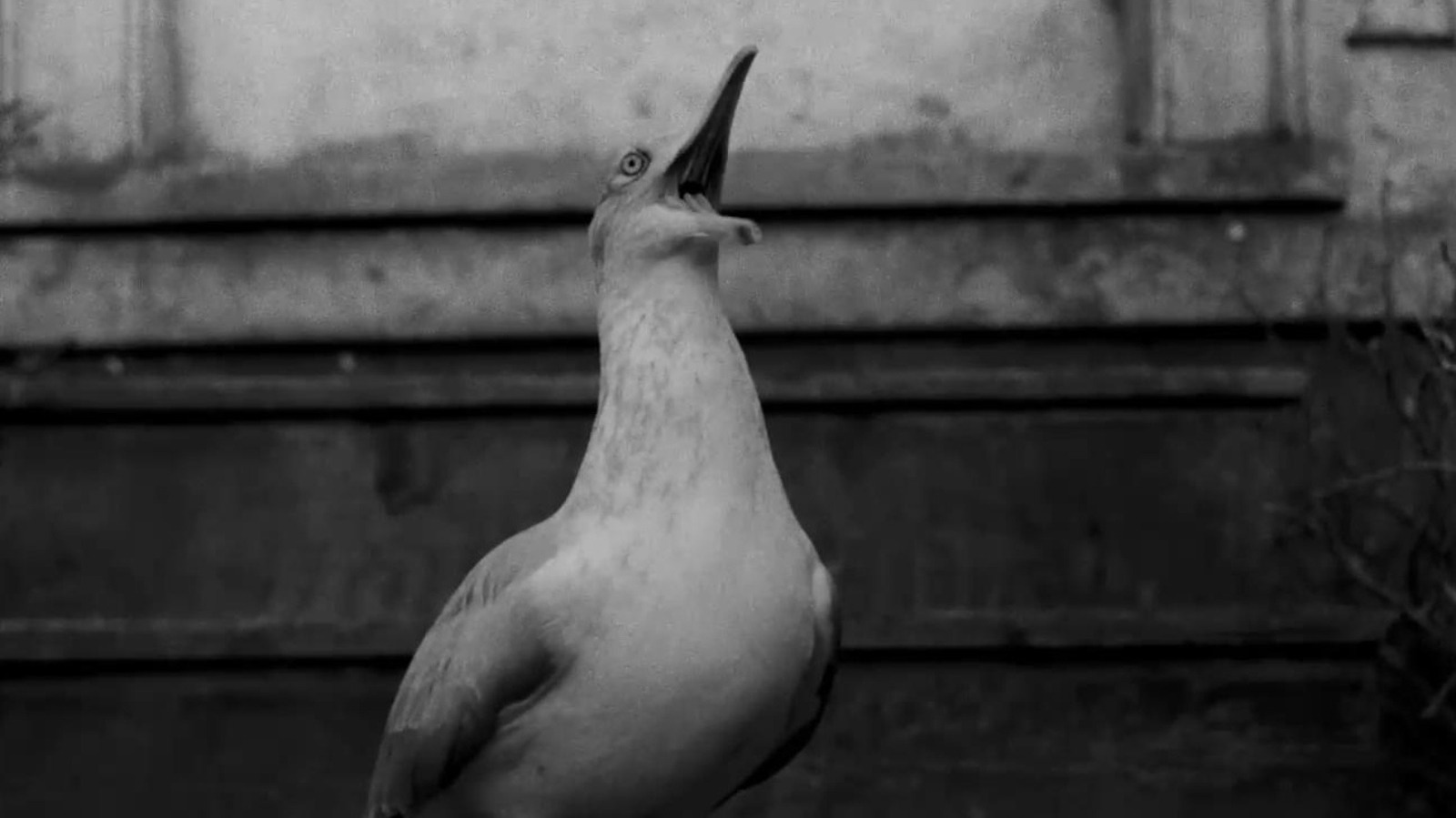
So, Ephraim may be a murderer trying to escape a crime. It’s implied as well, however, that Wake might also be a murderer. Ephraim never gets the full story of what happened to the previous wicki on the island, and eventually, Ephraim finds the old wicki’s severed head in a fishing net. Is this a symbol of what he may be facing on the island — his eventual “death” at the hands of guilt-induced madness — or is it more literal than that? Did Wake murder his old wicki, and now has to do the same to his successor?
Indeed, after Ephraim finds the head, his madness increases … or Wake’s manipulation of him does. Wake aggressively gaslights Ephraim, telling him that he might have been at the lighthouse for weeks, but also that it might have been there for years. Also, Wake is the one who insists they get drunk by drinking gulps of kerosene, implying that they’re both slowly being poisoned. The story of “The Lighthouse” could very well be the tale of Ephraim coming to work for a murderer, and the murderer going about his bleak business when Ephraim finds evidence of his crime.
But “The Lighthouse” is also much more than a bleak crime thriller. More than anything, as stated above, it’s a film about the horrors of masculinity, of maleness, and how male pride/ignorance/violence can break down the human mind.
Looking over pirates and naval men of pop culture, one can glean that living by the sea as a grizzled sailor is a broad archetype of masculine virility. Men, when forced to live with the odors and boners of other men, are driven mad by the filth.


Leave a Reply